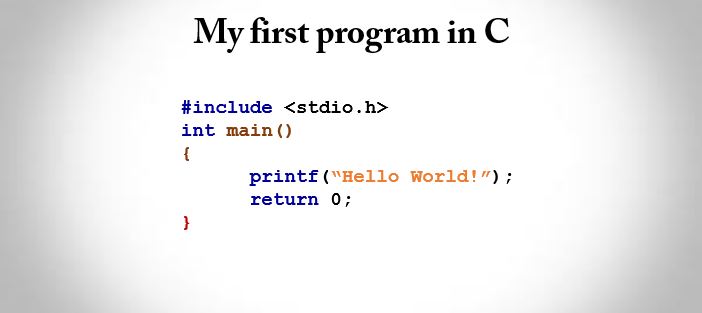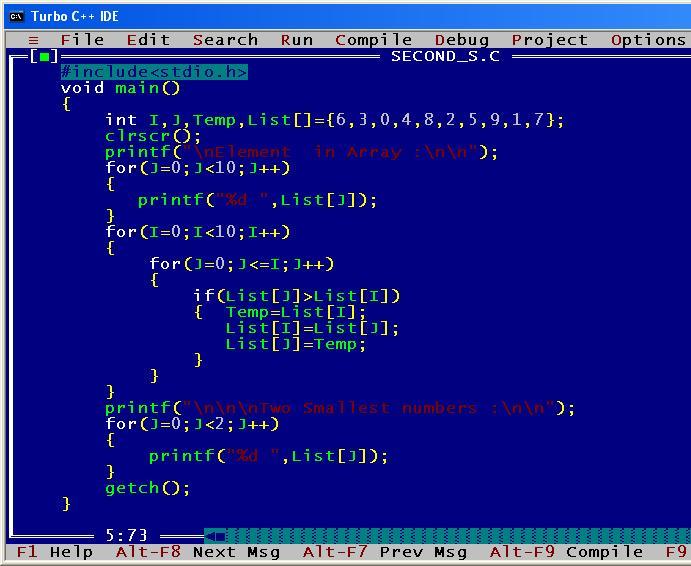

NET Core and VS Code for another relevant article). The C# support in Visual Studio Code is optimized for cross-platform.
C program portable#
The following example shows a portable way to add C++ and object-oriented features to a C struct. The layout of mybuf might vary among C++ compilers, but the C++ source code that manipulates mybuf and buf objects will work everywhere. If a pointer to mybuf doesn't point to the beginning of the buf data, the C++ compiler will adjust it automatically when converting a mybuf* to a buf*. You can derive a C++ class mybuf from the C struct buf, and pass pointers to the buf base class to the mybuf functions. You can guarantee C and C++ compatibility only if you leave the declaration unchanged. The portable solution is to leave struct buf strictly alone, even though you would like to protect the data members and provide access only through member functions. If you add virtual functions, the code will fail using compilers that add extra data (such as pointers to virtual tables) at the beginning of a class. This code, without virtual functions, might work, but you can't count on it. The C++ standard makes no promises about the compatibility of struct buf and class mybuf. What happens when the member functions pass the this pointer to the buf functions? Does the C++ class layout match the C layout? Does the this pointer point to the data member, as a pointer to buf does? What if you add virtual functions to mybuf? The interface to the class mybuf looks more like C++ code, and can be more easily integrated into an object-oriented style of programming - if it works. Use one of the following notations to declare that an object or function has the linkage of language language_name:Ĭlass mybuf With the exception of the pointer-to-function type, types do not have C or C++ linkage. Even though most C++ compilers do not have different linkage for C and C++ data objects, you should declare C data objects to have C linkage in C++ code. When you need to access a function compiled with C linkage (for example, a function compiled by the C compiler, or a function written in assembler), declare the function to have C linkage. All C++ compilers also support C linkage, for some compatible C compiler. The default linkage for objects and functions is C++.

The C++ language provides a "linkage specification" with which you declare that a function or object follows the program linkage conventions for a supported language. Oracle Developer Studio C and C++ compilers use compatible headers, and use the same C runtime library. If the C++ compiler provides its own versions of the C headers, the versions of those headers used by the C compiler must be compatible. C++ includes the standard C runtime library as a subset, although there are a few differences. The C runtime library used by your C compiler must also be compatible with the C++ compiler. Any C compiler that is compatible with the Oracle Developer Studio C compiler is also compatible with the Oracle Developer Studio C++ compiler. Third-party C compilers for Oracle Solaris usually also follow the ABI. Oracle Developer Studio C and C++ compilers follow the Oracle Solaris ABI and are compatible. Any useful compiler for Oracle Solaris must follow this ABI. The Oracle Solaris operating system specifies the Application Binary Interface (ABI) of C programs, which includes information about basic types and how functions are called. They must, for example, define basic types such as int, float or pointer in the same way.

The first requirement for mixing code is that the C and C++ compilers you are using must be compatible.
C program how to#
This article shows how to solve common problems that arise when you mix C and C++ code, and highlights the areas where you might run into portability issues. You can experience varying degrees of success as you port such code to different platforms and compilers. The C++ language provides mechanisms for mixing code that is compiled by compatible C and C++ compilers in the same program.


 0 kommentar(er)
0 kommentar(er)
